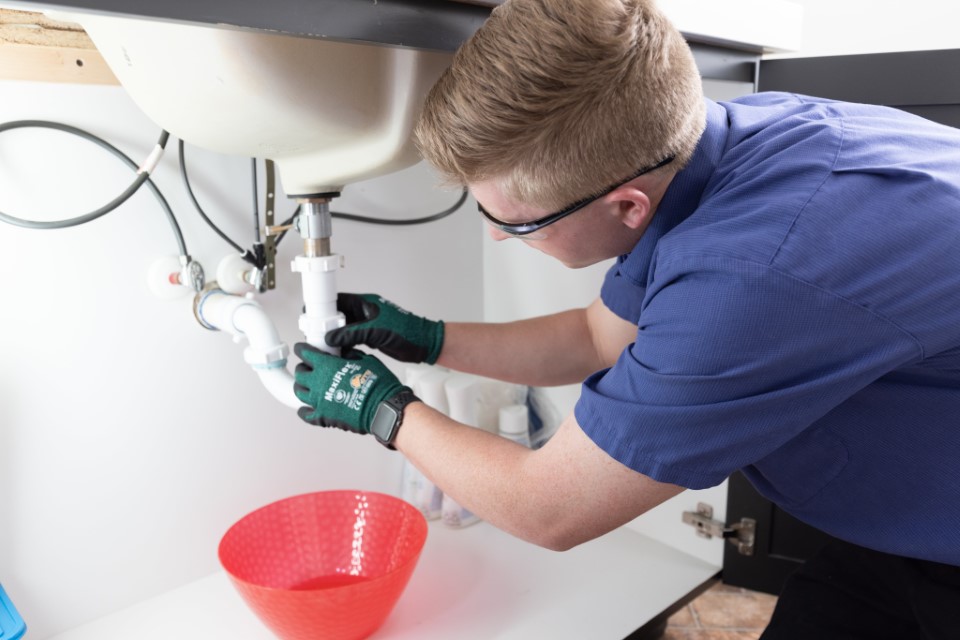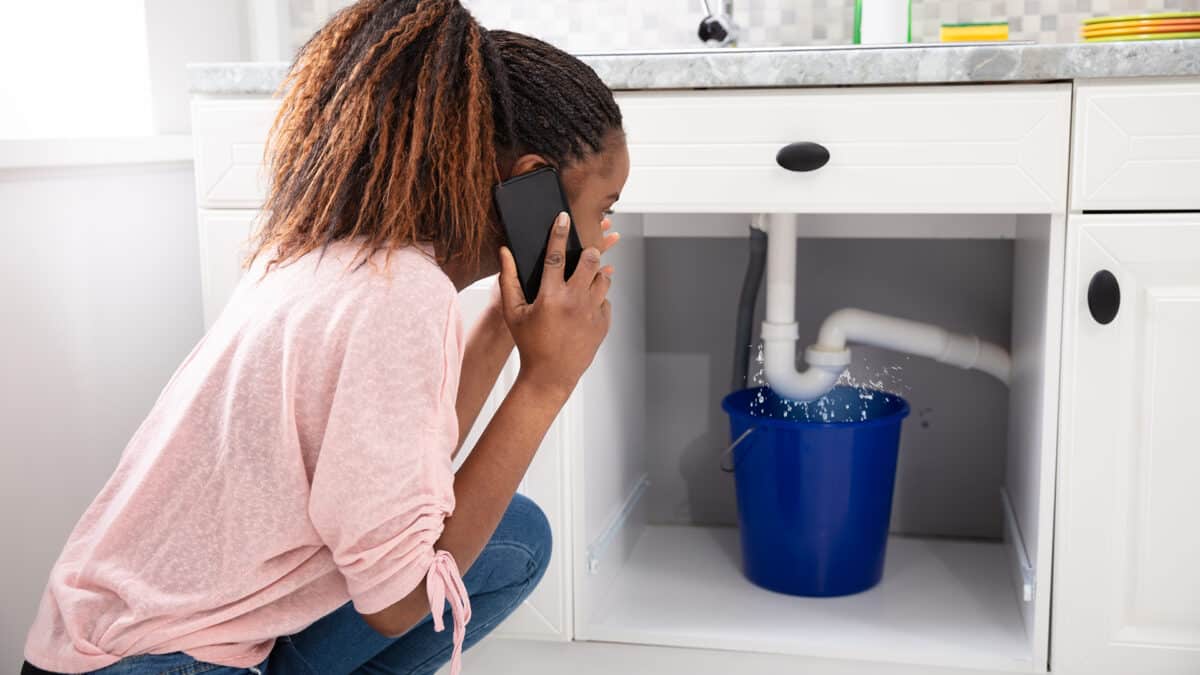Urgent Repair Advice: Ways to Manage Issues Until Help Arrives
Urgent Repair Advice: Ways to Manage Issues Until Help Arrives
Blog Article
They are making a number of good pointers related to Expert Tips for Emergency Plumbing Repairs in general in this article directly below.

Plumbing emergency situations can strike at any moment, creating tension and possible damage to your home. Whether it's a burst pipeline, a blocked drainpipe, or a leaky faucet, knowing just how to take care of the situation till an expert plumbing professional shows up can conserve you from further problems. This article supplies essential emergency situation pipes suggestions to aid you minimize damages and regain control during a plumbing dilemma.
Turn Off the Water System
The first step in any type of pipes emergency is to shut off the water system. For localized problems, such as a dripping faucet or bathroom, switch off the valve near the component. When it comes to a major leakage or ruptured pipe, find your home's major water shut-off shutoff and transform it off immediately. Understanding the area of these valves in advance can conserve valuable time during an emergency situation.
Address Tiny Leaks with Momentary Solutions
Tiny leaks can swiftly become considerable troubles if left unattended. Make use of these temporary repairs till professional assistance gets here:
While these fixes aren't long-term, they can assist decrease water loss and damage.
Unclog Drains Securely
A clogged drain can be a discouraging and messy problem. Right here's exactly how to tackle it:
If these methods do not function, prevent utilizing too much pressure, as it might aggravate the blockage.
Manage Overflowing Toilets
An overruning commode can trigger instant chaos. Here's what you need to do:
Turn off Your Hot Water Heater
In particular emergencies, such as a burst pipeline, it's wise to shut off your water heater. This prevents getting too hot or damages to the device when water stops streaming. Switch off the power supply to the hot water heater (electric or gas) and let it cool to avoid possible risks.
Temporarily Stop a Ruptured Pipe
A ruptured pipe can cause significant water damages in mins. To mitigate the concern:
Call a professional plumbing professional instantly to resolve the problem completely.
Take Care Of Frozen Pipeline Very Carefully
In cooler climates, icy pipelines are a common emergency situation. If you believe a frozen pipeline:
Avoid Additional Damages
Taking quick activity to decrease damage can conserve you money and time over time. Right here's exactly how:
. Have an Emergency Situation Plumbing Kit
Prepare a fundamental plumbing emergency set to handle minor problems successfully. Your set must consist of:
Having these tools on hand can make a significant distinction in your capacity to handle emergencies.
Know When to Call a Professional.
While quick fixes can help momentarily, specific plumbing issues call for prompt expert attention. Call a plumbing if:.
Promptly calling an expert guarantees the issue is solved properly and protects against further difficulties.
Final thought.
Pipes emergency situations can be overwhelming, but with the right expertise and tools, you can manage the scenario properly up until help shows up. By shutting off the water system, dealing with tiny leaks, and making use of momentary repairs, you can reduce damages and maintain your home safe. Keep in mind, these tips are momentary services; always seek advice from a licensed plumbing professional to take care of the source of the problem. Prep work and quick reasoning are your best allies in any kind of pipes emergency situation.
8 Helpful Tips for Managing Plumbing Emergencies at Home
If your plumbing system hasn’t failed once, wait for it because almost everyone has a story to tell. Sometimes, it could be simple emergencies such as a leaking pipe, a blocked cistern, or even a big burst pipe. In situations like this, you need to have some handy tips to save you some money and from possible damages.
Take care of minor issues early.
Sometimes, you could have avoided an emergency by taking proactive measures while it was still early. Some major plumbing emergencies can be a result of an ignored minor issue. We recommend that you have items like plumbing tapes and other related items. A plumbing tape can allow you to manage minor leaks before the plumber arrives.
Cut off the water supply.
This tip is essential in almost any type of leakage problem. For problems like minor leakages in the toilet or kitchen, turn off the supply that takes water to the affected pipes. If the leakage is a major pipe, you must shut off the supply valve to the entire building. This will help you avoid flooding your home and neighbors if you share a flat.
Know your plumbing system
Folks typically move into a new apartment without understanding the water supply around the building. This can prove disastrous if a water emergency arises and the plumber is far away. The previous tip will prove useless if you don’t practice this one. More importantly, know where your water shut-off valve is located – you’ll need that knowledge to prevent potential home floods.
Have some common handy tools
There are lots of plumbing emergencies that you can handle without hiring a plumber. That’s why you must keep some tools available always. Some tools that you can use to fix simple plumbing emergencies easily include plumbing tapes, screwdrivers, thread seal tapes, plungers, pliers, tape measures, and rubber gloves.
Insulate your pipes from cold
You’ll save yourself from many plumbing expenses if you protect your water pipes from the cold. This is because of the harmful effects that cold weather can have on your pipes. During winter, your pipes can burst from being overly expected to freezing temperatures. So, make sure insulators are there to keep the pipes working correctly.
Avoid practices that will clog your toilet.
Many people indulge in practices that can damage the plumbing system of the entire building. One of these is when they use their toilet to dispose-off garbage. They flush all kinds of things, such as paper towels, bandages, hairs, female sanitary products, etc., down the toilet. This will block your toilet in the long run, incurring unnecessary expenditures. Dump such waste in the trash instead.
Check your dials regularly.
Sometimes, there could be leakages in your home without noticing them in time. So, constantly monitor your water meter dial. If the dial is reading when there is nobody using water, this is an indicator that there is leaking. Check for leaks immediately. Call a plumber as soon as possible if you can’t find any.
https://www.constructionplacements.com/8-helpful-tips-for-managing-plumbing-emergencies-at-home/

We had been guided to that write-up on What to Do During a Plumbing Emergency through a good friend on another web address. I beg you take a moment to promote this write-up if you enjoyed reading it. Thank you for being here. Return soon.
Suggested Site Report this page